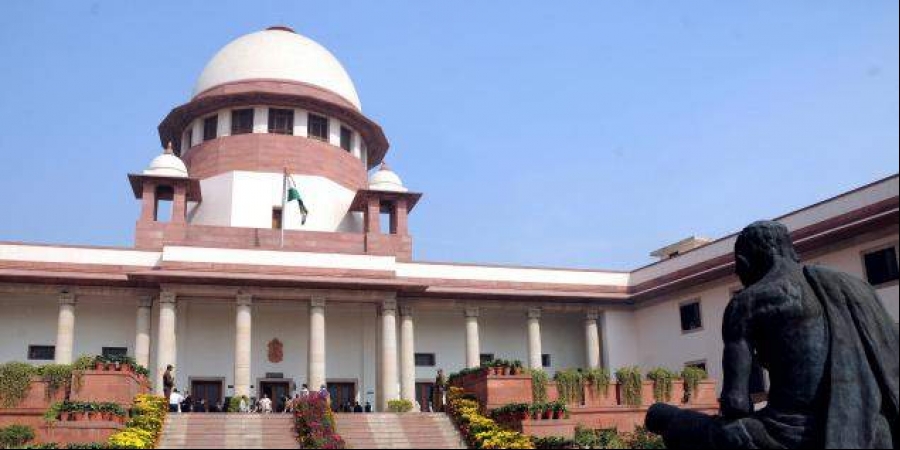NEW DELHI, Dec 13: The Supreme Court, which is hearing a plea challenging the validity of the sensitive Jammu and Kashmir Resettlement Act of 1982, sought to know today as to how many people who migrated from the State have applied for returning from Pakistan.
A bench headed by Chief Justice Ranjan Gogoi asked the State Government’s counsel to take instruction on the issue and posted the matter for further hearing on January 22.
Senior advocate Rakesh Dwivedi, appearing for the State, told the bench, also comprising Justices S K Kaul and K M Joseph, that he will seek instruction from the competent authority and give the details about the migrants and their descendants who may have applied for returning under the law.
The Apex Court wanted to know how many migrants and their descendants have applied and whether applications for return have been made by permanent residents — persons who are being given special rights and privileges under the Jammu and Kashmir Constitution.
The top court was apprised that the Act was meant for those people who have migrated to Pakistan in 1947 and were willing to return.
During the brief hearing, the bench showered several questions for the lawyers appearing in the matter, to the extent of the meaning of the term descendant under the law.
Dwivedi along with Jammu and Kashmir’s standing counsel Shoeb Alam said a letter has been circulated seeking adjournment of the matter saying that it should be heard after other contentious issue pertaining to Article 35-A and Article 370.
The Apex Court is seized of the petitions on both the issue. Article 35-A empowers the State assembly to define “permanent residents” for bestowing special rights and privileges to them.
Article 370 grants special status to Jammu and Kashmir and limits Parliament’s power to make laws concerning the state.
The Jammu and Kashmir Resettlement Act of 1982, which was stayed by the Apex Court in 2001, envisages grant of permit for resettlement of Pakistani nationals who had migrated to Pakistan from Jammu and Kashmir between 1947 and 1954 after India’s partition.
The petitioner, Jammu and Kashmir National Panther Party (JKNPP) is arguing the matter through its Chief and senior advocate Bhim Singh.
Singh has contended that the matter has been pending for long and needs to be decided.
The top court had on August 16, 2016 indicated that it may refer the matter to a constitution bench if it finds that some issues needed interpretation of the Constitution.
The court had said that it will hear the matter and if during the course of proceedings it is found that no constitutional issue is involved, then it will pass an order.
JKNPP had earlier told the court that a division bench in 2008 had issued direction to list the case before a constitution bench but the Chief Justice in the same year had over-ruled the decision and ordered the matter to be listed before a three judge bench.
It had said that people of Jammu and Kashmir who migrated to Pakistan from 1947 could be considered for their return but their descendants could not be.
The party had said that the law passed by the Assembly was draconian, unconstitutional and improper which threatened the security of the state.
JKNPP through Harsh Dev Singh, a then MLA, had challenged the Act passed by the J&K Assembly in 1982.
In 1982, the Act was first challenged by Singh before the apex court and then Governor B K Nehru had refused to sign the Bill and sent it back to the Assembly.
Later Atal Bihari Vajpayee, the then President of newly constituted BJP, had also filed a petition before the apex court seeking intervention.
Singh said that even B K Nehru, an Indian diplomat and native of Kashmir was convinced that the Act suffered from many defects and constitutional error.
The matter was considered by the Constitution Bench of the Supreme Court in 2001 on a presidential reference. The apex court returned the reference to President with a three-word pronouncement: ‘Returned, respectfully, unanswered’.
Singh in 2001 had filed a writ petition in the apex court seeking quashing of the Resettlement Act.
The top court while admitting the plea had ordered for stay of operation of the Act and in 2008, the matter was referred to the constitution bench on the plea that the subject relates to the interpretation of the Constitution of India. (PTI)
Trending Now
E-Paper


